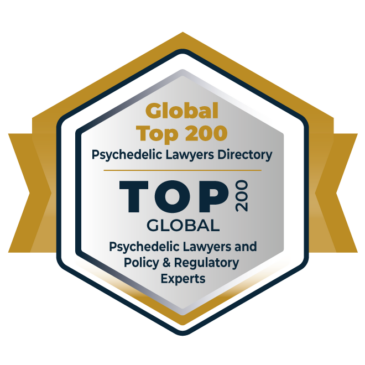Psychedelics

Helping those in the revived psychedelic space with their IP needs.
Bereskin & Parr’s Psychedelics practice group has the breadth and experience to help clients protect their intellectual property in this space.
Dating back to the 1950s, psychedelic drugs such as psilocybin, mescaline and tryptamines, have been a topic of interest due to their potential therapeutic benefits, especially for mental health disorders. However, little research was conducted into these powerful drugs due to their illicit nature. Recently, there has been a psychedelic renaissance as governments have relaxed certain laws to allow research into the compounds, with numerous clinical trials now demonstrating the efficacy of psychedelics in treating conditions such as depression, anxiety, PTSD and addiction.
The psychedelic renaissance has spurred a significant amount of R&D in recent years. A recent report projects that the global psychedelic drugs market size will double by the year 2027 (from 4.75 Bn USD to 10.75 Bn by 2027).
Not surprisingly, the renewed interest in psychedelics has led to a surge in patent applications, and other forms of intellectual property, to protect the innovations in this space. From new chemical derivatives with enhanced properties to new extraction methods for isolating and purifying the compounds, the psychedelic space is poised to make great contributions in the treatment of mental health disorders.
In Canada, psychedelics are classified as controlled substances under the Controlled Drugs and Substances Act, and most activities are prohibited unless authorized under the regulations or an exemption is granted by the Minister under section 56 of the Act.
However, the regulatory environment is favourable for the growth of the psychedelics industry. Health Canada recently approved the construction of a psilocybin research facility in Ontario. Last year, Alberta became the first province to regulate psychedelics for therapeutic use. In addition, a number of clinical trials involving psychedelics such as psilocybin, MDMA and ketamine are ongoing.
As the psychedelic renaissance is upon us, stakeholders should be aware of the different forms of intellectual property that can be used to protect their innovations. The following are some of the ways our team can assist clients.
Patents
Patents often provide the strongest intellectual property protection for those looking to protect innovations in the psychedelic space. An issued patent allows the owner to exclude all other parties from making, using, or selling the invention for a period of 20 years (from the filing date of the patent application). Examples of potential inventions in the psychedelic space include new chemical derivatives, new dosage regimens or treatment of health conditions, and formulations which can deliver the active compounds. In addition, new and inventive methods of extraction of an active compound (e.g. psilocybin from mushrooms), as well as processes for synthesizing such compounds would likely be patentable as well.
Industrial designs
Industrial designs protect novel and non-functional, esthetic aspects of products or their packaging. Industrial designs can protect the shaping of products and ancillary products for medical use of psychedelics such as delivery devices.
Trademarks
Trademarks protect words, slogans, logos and/or designs which serve to distinguish a company and/or product from other competitors in the market. As psychedelics are still considered illicit substances, certain intellectual property offices may not register marks that specify such products. There may be other available strategies in some countries, such as to refer more generically to the goods and services. Trademark registrability may improve if psychedelics are eventually legalized for the treatment of mental health conditions.
Trade Secrets
A trade secret is another form of intellectual property which protects certain types of confidential information. Examples of trade secrets include technical processes, formulas, business plans and customer lists. In the psilocybin industry, for example, a company may have a specialized process for extracting the active compounds which they decide to maintain as a trade secret, rather than trying to protect (and therefore disclose) through the patent process.
In-Sourcing Agreements
Our team has experience drafting agreements for various players in regulated industries including licensed producers, suppliers, and distributors.








